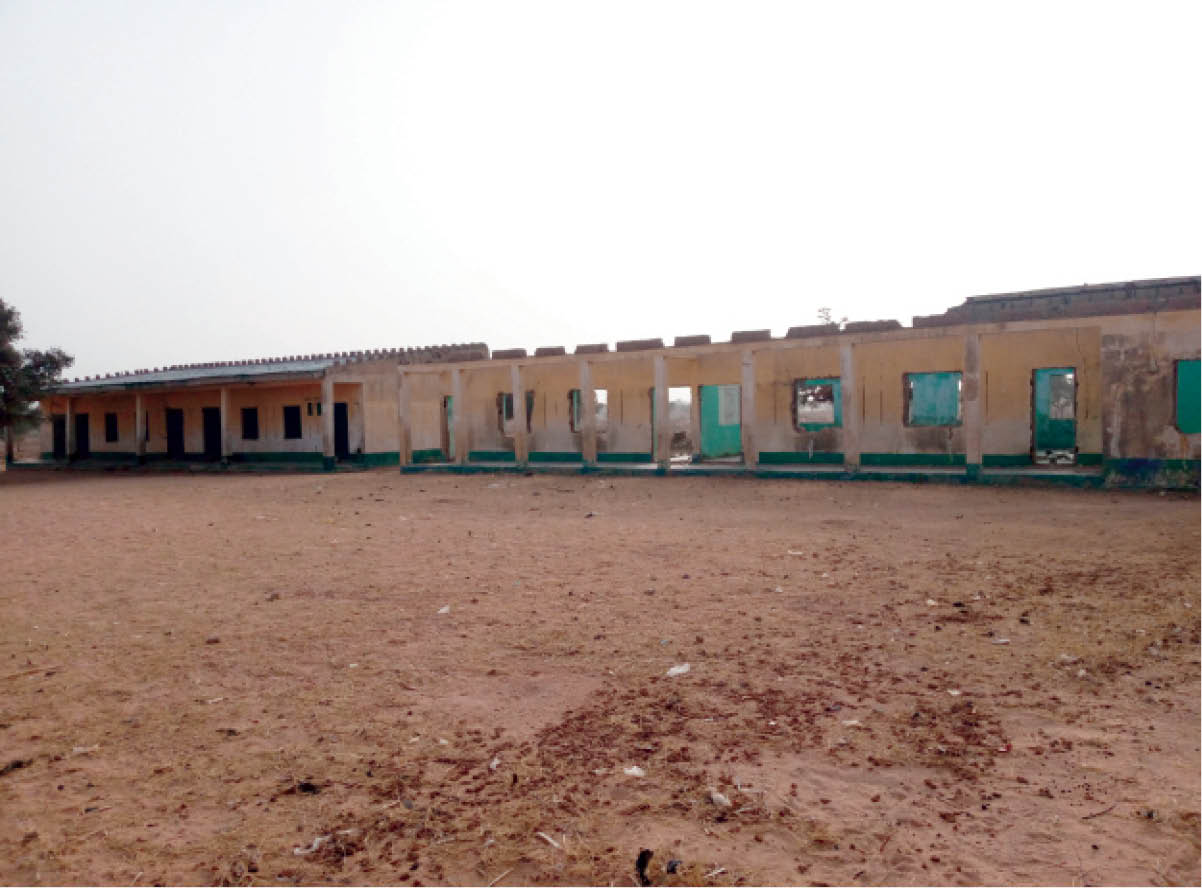Teacher shortage, inadequate funding and insecurity are the major issues undermining efforts in the provision of basic education to kids in nomadic and migrant fishermen communities.
The refusal by teachers to accept rural posting is compounding the problem of teacher shortage, it was learnt.
These challenges, according to sources, have resulted in low pupils’ enrolment, attendance, progression and transition as well as high rate of out-of-school nomadic children.
In Katsina State, for instance, most of the nomadic schools in the frontline local government areas (LGAs) that suffered attacks by bandits reportedly shut down, even before the COVID-19 pandemic lockdown, while dozens of pastoralists have had to move their herds to other locations, a source said. Other schools lack the essential elements of learning environments.
Kyabbo Nomadic Primary School in Jibia LGA and Hamada Nomadic Primary School in Sabuwa LGA were at one time destroyed and burnt by bandits while Giginyu Nomadic Primary School and Garin Liman Nomadic Primary School in Batsari LGA are unreachable by pupils and teachers due to their closeness to the bandits’ hideouts.
Kyabbo Nomadic Primary School was reopened in March 2017 after the bandits retreated before it was deserted again.
A state official said government will ‘significantly’ improve education.
A nomadic teacher in Bauchi State said most schools have only a few teachers and furniture, adding that farmer-herder conflicts are also causing teachers to reject rural postings.
Dembo Nomadic School, Buzaye village and Natsira Wuro Jauro Nomadic School, Kangere in Bauchi LGA have inadequate furniture, he added.
When contacted, Secretary of Bauchi State Agency for Nomadic Education, Musa Ibrahim Hardo, said most of the schools are located at the hard-to-reach areas where teachers do not like to go and stay.
Hardo said, “The agency has been given the opportunity to recruit teachers within the immediate communities.”
He said the agency is working with the Universal Basic Education Commission (UBEC) to upgrade school infrastructure in nomadic communities.
He explained that the agency has embarked on mass enlightenment of nomads to enrol their children into Western education schools.
Similarly in Edo State, teacher shortage is threatening pupils’ learning in most of the nomadic and fishermen’s communities. And with only a few teachers accepting rural postings, communities are left with no option than to hire ad hoc teachers to teach pupils.
Osa Primary School in Gelegele village built in 1955 is still in good condition with enough furniture but it is facing teacher shortage.
The headmaster, Eyituoyor Emiko, said the school which is under the State Universal Basic Education Board (SUBEB), has 201 pupils but only two permanent teachers. The local community has, in conjunction with the Parent Teacher Association (PTA), recruited three non-permanent teachers and three non-teaching staff to cater to pupils’ needs, he said.
The school, he said, was recently renovated by SUBEB and the Niger Delta Development Commission (NDDC) which also provided furniture.
Mr Emiko said apart from additional teachers, the school is in need of fencing to prevent encroachment, as well as additional toilets. He said shortage of teachers usually disrupts learning and destabilises education system.
The headmaster said attendance rate in the school has ‘been above 97 per cent.’ A source also said only a few pupils often miss lessons while helping their parents to do household chores.
The spokesman of Gelegele community, Chief Macaulay Ayiwe, said the community provide the needed support to the school, including temporary teachers and acts as watchdog to ensure that quality education was given to children.
He said, “The school was built in 1955 with the help of the former Premier of Western Region, late Chief Obafemi Awolowo. We, as leaders, ensure that pupils attend classes regularly.”
He also said the livelihood of the people in the community depended on farming, fishing and in a few instances, exploitation of timber. He called on state and federal authorities to send more teachers to the school.
It was found that teacher shortage is more acute in rural communities, especially places where there are incidences of attacks on locals as well as abductions.
Mr Okoh David, a headmaster at a public primary school in the fishermen community of Ofitebe, said he is ‘the only teacher that provides knowledge to all the 49 pupils’ in the school.
He said, “I was teaching 91 pupils in primary one to six but the number reduced to 49 because primary six pupils have graduated after writing the common entrance exam.”
Mr David said apart from the difficult terrain, some places were only accessible by boat, adding that incessant attacks on people by suspected bandits have scared a lot of people, including teachers, away from the riverine areas.
In the meantime, state officials have said the challenge of teacher deficit in schools is known to them and that effort was being made to resolve all the school-related problems.
SUBEB’s Director of Social Mobilization, Mrs D. O. Asemota, said teacher inadequacy is caused by many factors and that the board is compiling the statistics of schools without adequate teachers with a view to recruiting more.
She further stated that the School Based Management Committee (SBMC) in each school is being encouraged to provide teachers.
Also, the nomadic school in Ugwuachara, along the old Enugu-Abakaliki highway, Abakaliki, Ebonyi State, is said to be in a state of disrepair.
The school relies on temporary teachers, mostly corps members, a parent who will not want to be mentioned said.
An official of UBEC said government has approved compulsory basic education for children of herders and renovation of schools.
Correspondingly, a community leader, Ardo Abdullahi Mamud, said Nomadic Primary School, Tungan Nufawa in Lafia LGA of Nasarawa State, which was first destroyed during the Ombatse crisis of 2005 is still in a bad shape.
A state lawmaker donated 20 bags of cement in addition to donations by community members for the renovation of the school, he said.
He said while parents are discouraging children from missing classes, there are only two teachers in the school, adding that before the crisis, there were four teachers. The school, he said, is in dire need of furniture and pupils are forced to sit on logs supplied by parents.
A SUBEB official said schools are gradually being repaired.
A fisherman in Azuzuama community in Southern Ijaw LGA of Bayelsa State, Mr Saturday Nonso, said the public primary school in the community does not have enough teachers and learning facilities, so most parents send their children to private schools.
He also complained of the difficult terrain of the area which makes it difficult for children to get to school in the rainy season.
He said, “During the rainy season when the water level is higher, all these places, including schools are flooded. Children do not attend classes,” he said.
The Permanent Secretary, Bayelsa State Secondary Education Board, Mr Walton Liverpool had said during the training and posting of volunteer teachers to rural schools, that government will send more teachers and learning equipment to coastal communities and that an education trust fund was created to carter to the needs of schools.
When contacted, the Executive Secretary, National Commission for Nomadic Education (NCNE), Professor Bashir H. Usman, said inadequate funding is one of the major problems facing the commission and by extension, the delivery of quality education.
He said the federal government is supporting 563,744 pupils in 3,582 nomadic schools nationwide.
He said the commission receives only 50 per cent of its annual budgets due to funding challenges facing the government.
According to the website of the Budget Office, N1,499,593,714 was proposed as the total allocation for the commission in 2020.
On teacher shortage, he said, “By law, we don’t employ and own a teacher; that is the responsibility of the states and local governments because the pastoralists cross local and state boundaries.”
He said the commission has adopted ‘multigrade teaching’ to address the problem of teacher shortage.

 Join Daily Trust WhatsApp Community For Quick Access To News and Happenings Around You.
Join Daily Trust WhatsApp Community For Quick Access To News and Happenings Around You.


